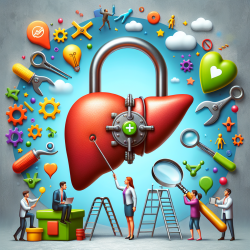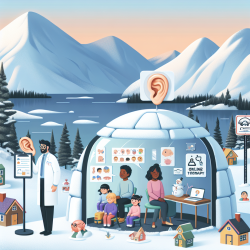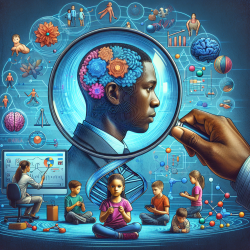Introduction
Drug-induced liver injury (DILI) is a complex and evolving challenge for healthcare practitioners. Recent literature, including the comprehensive review "Drug-Induced Liver Injury: Highlights and Controversies in the Recent Literature," sheds light on significant advancements and controversies in this field. For practitioners, understanding these developments is crucial for improving diagnostic accuracy and patient outcomes, especially in pediatric populations where drug safety is paramount.
Key Findings and Their Implications
The research highlights several pivotal findings:
- Glutamate dehydrogenase has emerged as a potentially more specific biomarker for DILI than alanine aminotransferase, offering a promising tool for more accurate diagnosis.
- Novel technologies, such as organoid culture systems, are being developed to predict DILI preclinically, which could revolutionize how we assess drug safety before they reach the market.
- The COVID-19 pandemic has introduced new challenges in diagnosing DILI, with liver injuries reported both from the virus itself and the drugs used in its treatment.
Practical Applications for Practitioners
For speech-language pathologists and other practitioners involved in pediatric care, these findings can be transformative:
- Improved Diagnostic Tools: Utilizing more specific biomarkers like glutamate dehydrogenase can enhance the accuracy of DILI diagnosis, ensuring safer therapeutic interventions for children.
- Preclinical Testing: By advocating for the use of organoid culture systems, practitioners can support safer drug development processes, potentially reducing the incidence of DILI in pediatric populations.
- COVID-19 Considerations: Understanding the dual impact of COVID-19 and its treatments on liver health can guide more informed decisions in managing therapy for children affected by the virus.
Encouraging Further Research
While these advancements are promising, the research also highlights areas where further investigation is needed:
- Identifying genetic markers that predict susceptibility to DILI could lead to personalized medicine approaches, tailoring treatments to individual risk profiles.
- Developing comprehensive guidelines for managing DILI in the context of COVID-19 remains a critical need, as the pandemic continues to affect global health.
Practitioners are encouraged to stay informed about ongoing research in DILI to continually refine their practice and improve patient outcomes. By integrating the latest findings into clinical decision-making, healthcare providers can enhance the safety and efficacy of treatments, particularly in vulnerable pediatric populations.
To read the original research paper, please follow this link: Drug-Induced Liver Injury: Highlights and Controversies in the Recent Literature.










